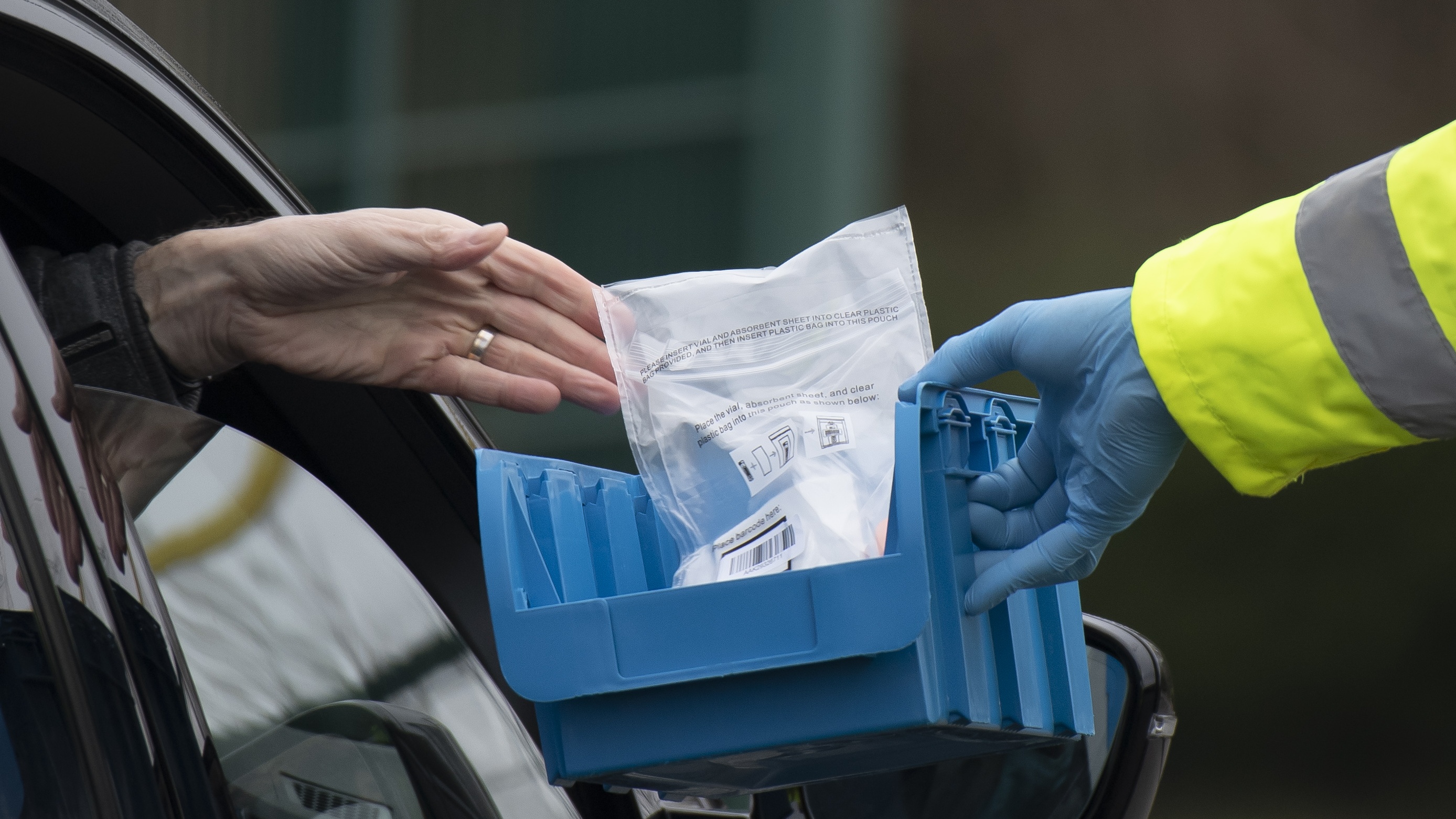Covid study reveals who is most likely to break rules
Survey suggests our intentions are good - but being scuppered by limited financial and social support

A free daily email with the biggest news stories of the day – and the best features from TheWeek.com
You are now subscribed
Your newsletter sign-up was successful
Only half of the Britons who develop Covid symptoms are fully self-isolating and fewer than a quarter request a test, newly published survey findings suggest.
Half of the respondents were also unable to identify key symptoms of the coronavirus, such as a cough, high temperature of fever, and loss of sense of smell or taste.
But our intentions are good, according to the team behind the Covid-19 Rapid Survey of Adherence to Interventions and Responses (Corsair) study.
The Week
Escape your echo chamber. Get the facts behind the news, plus analysis from multiple perspectives.

Sign up for The Week's Free Newsletters
From our morning news briefing to a weekly Good News Newsletter, get the best of The Week delivered directly to your inbox.
From our morning news briefing to a weekly Good News Newsletter, get the best of The Week delivered directly to your inbox.
In a paper outlining their findings, published in the BMJ, the researchers report that of a total of almost 54,000 people quizzed in a series of surveys between March 2020 and January 2021, more than 70% intended to fully self-isolate if Covid symptoms developed, with around the same percentage intending to follow Test and Trace protocols. Meanwhile, more than 60% said they would request a test.
The results suggest that “a greater focus on financial and practical support” would help “more people to translate their intentions into behaviour”, say the study authors, from institutions including King’s College London, Public Health England and University College London.
Who is less likely to isolate?
The study found that lower adherence to self-isolation was associated with factors such as “being a key worker, having children at home, being male, younger age, and experiencing greater financial hardship”, reports The Guardian.
A free daily email with the biggest news stories of the day – and the best features from TheWeek.com
Men and younger people, in particular, were less likely to test and self-isolate. The study authors suggest that “this might reflect poorer health literacy in males, and, among younger people, a greater desire to be active and have contact with peer groups”.
Key workers also struggle to fully isolate, possibly because they have “a greater financial need to work, feel a greater social pressure to attend work, or are less likely to be able to work from home”, the researchers add.
Is adherence getting better or worse?
The most recent survey, conducted between 25 and 27 January, found that 51.8% of respondents who had experienced Covid symptoms and had not tested negative had “fully adhered” to self-isolation by “not leaving home for any reason” in the first ten days after symptoms appeared.
Testing uptake was even lower, with only 22.2% of people who reported having symptoms in the previous seven days requesting a test.
The findings were slightly more encouraging than those from previous surveys, however. Of people quizzed in the previous three months, only 42.5% of people with symptoms were “fully” self-isolating, and just 18% requested a test.
Such low rates for symptom recognition, testing and full self-isolation suggest the effectiveness of UK’s £32bn Test and Trace scheme in its “current form” is “limited”, says the report.
The findings appear to be at odds with latest data from the Office of National Statistics, which reports that 90% of people asked by NHS Test and Trace to self-isolate after contact with a positive Covid case claimed to have done so for the full ten-day self-isolation period.